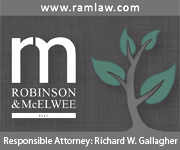Industry News
|
Forest Management Review Commission, June 7, 2015
Remarks of Roger Sherman, Legislative Chair, West Virginia Forestry Association The Forestry Amendment to the West Virginia Constitution states that: "The Legislature may by general law define and classify forest lands and provide for cooperation by contract between the state and the owner in the planting, cultivation, protection, and harvesting thereof. Forest lands embraced in any such contract may be exempted from all taxation or be taxed in such manner, including the imposition of a severance tax or charge as trees are harvested, as the Legislature may from time to time provide. But any tax measured by valuation shall not exceed the aggregate rates authorized by section one of article ten of this constitution." [6-53] It is apparent that the amendment contemplates the possibility of a severance tax or a property tax, but not both, as we have today. A study completed in 2006 by Drs, Moss and Arano at West Virginia University clarified that: Taxes levied on timber are yield taxes, since a true severance tax on timber is inappropriate. In theory, yield taxes are distinguishable from severance taxes based on their intent. Whereas severance taxes are levied to compensate society for loss of value from extracting resources, yield taxes are normally used as a replacement for annual property taxes. Even though timber taxes are actually yield taxes, in practice the distinction is sometimes made based on how the taxes are calculated: "severance" taxes are based on units of production, whereas "yield" taxes are based on the value of production. By this definition, West Virginia's "severance" tax on timber is actually a yield tax. Visit https://www.naylornetwork.com/wvf-nwl/articles/?aid=324672&issueID=41971 to view the full article online. |
WVFA Events
WV Loggers Council
|
From Kathy Becket, Steptoe & Johnson
On May 26, 2015, the Department of Interior, USFWS, issued a notice of intent seeking comments by July 27, 2015, on the proposed programmatic environmental impact statement (PEIS) pursuant to the National Environmental Policy Act to evaluate the potential environmental impacts of a proposal to authorize incidental take of migratory birds under the Migratory Bird Treaty Act. 80 Fed. Reg. 30032. Visit https://www.naylornetwork.com/wvf-nwl/articles/?aid=324673&issueID=41971 to view the full article online. |




